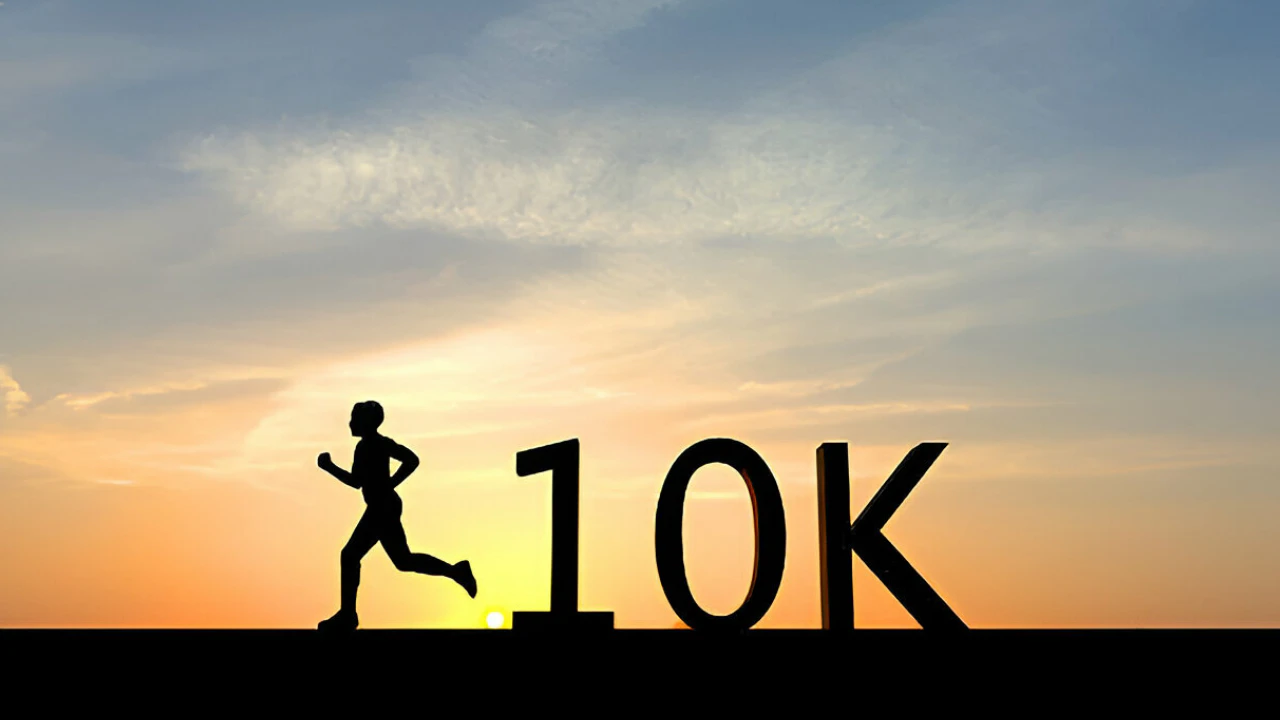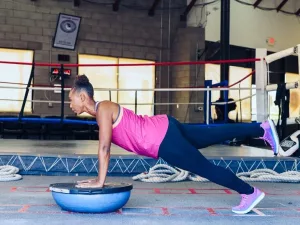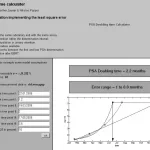Have you ever asked yourself how long a 10K run actually is and whether you can make it to the end? Think of the following: Out of the blue, my pal, Natalie, a 35-year-old woman so fond of her weekend strides, joined her very first 10K race. She had already run a few 5Ks, but the moment she inquired, “Is 10K how many miles?” and knew that it was 6.2 miles, something inside her seemed to be sparkling. “That’s my usual running distance taken times two!” she laughed a little dystonically, but in advance, she was a bit nervous. In a minute, she lost her curiosity and the idea even flashed through her mind that she ran it faster or slower than the average run. The classic tale of “fone it for the short but information-laden thing” has been around forever. Here is the article for you to read. We will elaborate on the distance and compare the average 10K times by age group and gender. Also, we will provide tips to make your preparation better—no matter if it’s your first race or your tenth.
Understanding the Distance: How Many Miles is 10K?

First things first, a 10K is 10 kilometers which can be converted to about 6.2 miles, and we all know that most of us think miles rather than kilometers. This number, 6.2, can visualize it for you if you think it’s 3.1 miles or 5K, which is exactly half that distance. A 10K (6.2 miles) is still short but it is a significant milestone between a 5K and a half marathon (13.1 miles). On the day of the race, I was amazed that 6.2 miles weren’t just my usual round at the park but they were longer. I felt scared but also thrilled because I realized that I could do something I didn’t think I could conquer.
Why is the 10K so popular? It strikes a sweet spot. For beginners, it’s a step up from shorter races, testing your endurance without overwhelming you. For seasoned runners, it’s a chance to push speed and stamina. Knowing that a 10K is 6.2 miles is the first step to wrapping your head around it—and figuring out how to train for it.
Factors Influencing 10K Run Times

Okay, so you know how many miles are in a 10K, but how long will it take you to run it? That’s where things get interesting, because it’s not a one-size-fits-all answer. Your time depends on a handful of factors, and understanding them can help you set realistic expectations. Let’s dive into the big ones.
Age
Age is a big player in running performance. Typically, runners in their 20s and early 30s are at their physical prime—think peak muscle strength and lung capacity. That often means faster times. But here’s the cool part: as we age, experience kicks in. I’ve met runners in their 50s who outpace younger folks because they’ve mastered pacing and consistency. So, while youth might give you a speed edge, don’t count yourself out if you’re past that “prime” window.
Sex
Physiology comes into play here, too. On average, men tend to post faster 10K times than women, thanks to differences like higher muscle mass and oxygen efficiency. That said, women are crushing it out there, and the gap isn’t as wide as you might think—especially among recreational runners. It’s less about gender and more about your individual effort and training, so don’t let stats define your potential.
Training Level
This one’s huge—and totally in your control. If you’re a beginner, your first 10K might take longer than someone who’s been logging miles for years. When Natalie started training, she could barely run 4 miles without stopping. But after a few weeks of steady effort, she was breezing through 6. Experienced runners, meanwhile, might focus on speed or shaving minutes off their PR (personal record). Wherever you’re starting, training is the game-changer.
Terrain and Weather
Ever run uphill in the pouring rain? Yeah, it’s not fun—and it slows you down. The course matters: flat pavement is faster than rolling hills or trails. Weather’s a wild card, too. Hot, humid days can zap your energy, while a cool, crisp morning might give you a boost. You can’t control Mother Nature, but you can adjust your pace and mindset to handle whatever race day throws at you.
Average 10K Times by Age and Sex
Now, let’s get to the numbers. What’s a “normal” 10K time? It varies, but here’s a solid benchmark based on data from over 10,000 runners in a 2010 race, sourced from OLYRUN. These are averages, so your time might differ depending on your training, the course, or even how you’re feeling that day. Check it out:
| Age Group | Men | Women |
|---|---|---|
| 0-15 | 57:16 | 1:03:23 |
| 16-19 | 46:42 | 1:00:29 |
| 20-24 | 51:47 | 59:58 |
| 25-29 | 53:39 | 1:02:33 |
| 30-34 | 54:29 | 1:02:40 |
| 35-39 | 54:35 | 1:02:27 |
| 40-44 | 53:39 | 1:02:46 |
| 45-49 | 55:43 | 1:03:36 |
| 50-54 | 56:27 | 1:04:13 |
| 55-59 | 59:08 | 1:07:50 |
| 60-64 | 58:56 | 1:10:01 |
| 65-99 | 1:03:11 | 1:19:08 |
What jumps out here? For men in their 20s, the average hovers around 51-54 minutes, while women in the same age bracket are closer to 60 minutes. As age climbs, times creep up a bit—say, to 56 minutes for men in their 50s and 64 for women. But it’s not a steep drop-off, which shows how much staying active pays off. Natalie, at 35, saw her age group’s average (around 62 minutes for women) and thought, “Okay, I can work with that!”
What’s the Average 10K Time for a Beginner?
If you’re new to this—like Natalie was—you’re probably wondering what’s realistic. For beginners, finishing a 10K in 60 to 70 minutes is pretty standard. That’s about a 10- to 11-minute mile pace, which feels doable if you’re jogging steadily. The goal for your first race? Cross the finish line smiling, not stressing about the clock. Speed comes later.
How Does Age Affect 10K Run Times?
Age isn’t destiny. Sure, younger runners might have a natural edge—those 16-19-year-old guys averaging 46:42 are flying! But older runners bring wisdom to the table. They know how to pace themselves and avoid burning out. Look at the 60-64 group: men at 58:56 and women at 1:10:01 are still crushing it. So, no matter your age, training and grit can keep you competitive—or at least happy with your finish.
How to Train for a 10K: Strategies and Tips

Training for a 10K isn’t just about running more—it’s about running smarter. Whether you’re starting from scratch or aiming to improve, here’s how to get ready for those 6.2 miles. I’ll share what worked for Natalie (and a few lessons I’ve learned myself along the way).
Setting Realistic Goals
First, figure out what you’re aiming for. Beginners might just want to finish without walking—totally legit! If you’ve got some miles under your belt, maybe you’re eyeing a time, like breaking 60 minutes. Natalie’s 5K pace was around 10 minutes per mile, so we estimated her 10K at 62-65 minutes. Pick a goal that stretches you but doesn’t snap you, and adjust as you go.
Creating a Training Plan
A good plan is your roadmap. Most 10K programs run 8 to 12 weeks and mix these elements:
- Easy runs: Short, relaxed jogs (3-4 miles) to build your base.
- Long runs: Work up to 6-7 miles over weeks to prep for race day.
- Speed work: Try intervals (like 1 minute fast, 2 minutes slow) once a week.
- Rest days: Take at least one full day off—your legs will thank you.
Need a guide? Hal Higdon’s 10K plans are gold—options for novices to pros. Natalie followed his novice plan, and by week 8, she was running 6 miles without a hitch.
Nutrition and Hydration
You can’t outrun a bad diet. Fuel up with carbs (think pasta or oats) for energy and protein (chicken, beans) for recovery. On long runs, Natalie started carrying a gel or banana—huge difference. Water’s your best friend, too. Sip throughout the day, and for runs over an hour, a sports drink can replace lost electrolytes. Pre-race tip: don’t try anything new—stick to what your stomach knows.
Common Mistakes to Avoid
Here’s where newbies (and even vets) trip up:
- Too much, too soon: Don’t jump from 3 miles to 10—add 10% more each week, max.
- Skipping rest: I learned this the hard way—overtraining leads to shin splints.
- Ignoring strength: A strong core and legs keep your form solid. Try planks or squats.
Patience is key. Build up slowly, and you’ll hit race day feeling strong, not broken.
Conclusion
So, what’s the takeaway? A 10K is 6.2 miles, and how long it takes depends on your age, sex, training, and the day’s conditions. Average times range from 50 to 70 minutes for most adults, but your personal finish line is what counts. Natalie crossed hers in 63 minutes—right on target—and couldn’t stop grinning. Whether you’re chasing a time or just the thrill of finishing, it’s all about preparation: a smart plan, good fuel, and a little grit.
How many miles are 10K? Now you know—6.2—and with these tips, you’re ready to tackle it. Got a race coming up? Drop your goals or questions below—I’d love to hear your story. Happy running!

























Leave a Reply
You must be logged in to post a comment.